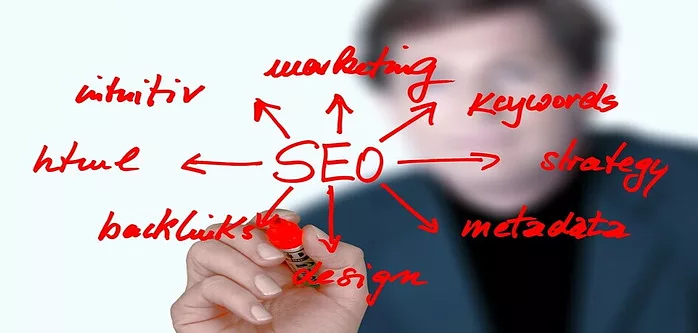
I’m going to take you through the murky waters of online scams. You’re going to find out about various types and the common tactics these digital con artists use to lure unsuspecting victims. It’s not just about recognizing a scam; it’s also about arming yourself against them.
Due diligence online is akin to locking your doors at night; it’s a basic security measure. Question anything that seems off, and don’t take unsolicited offers at face value. That deal promising high returns with no risk? Approach it with a healthy dose of skepticism.
Here’s a handy tip for you: always check for website authenticity. Look for HTTPS in the URL, and a padlock icon in the address bar. These indicate a secure connection, a step that fraudsters often skip. But that’s not enough, you can also look up the site’s reputation through reviews and service ratings.
Now, why is this so critical? Dodgy deals and questionable sites can not only leave you out of pocket but also at risk of identity theft. I’m here to help you understand that a little caution goes a long way.
Enhancing Digital Literacy: Knowledge is Your Best Defense
If you want to navigate the online world safely, it’s critical to boost your digital literacy. Understand the traps laid by tech-savvy scammers who use phishing schemes, bogus emails, and counterfeit websites. Sure, you might think, \
I can spot a scam a mile away,\
but the truth is, they’re getting more sophisticated by the day.
I’m here to help you with fortifying your digital defenses. Start with installing and regularly updating reliable security software. These programs aren’t just a safety net; they’re your front-line protection against invasive scams.
Now, managing your digital footprint isn’t just about privacy; it’s about power. Being aware of the information you share online cuts off a major source scammers use to target you. Resist the urge to overshare on social media or fill out unnecessary online forms.
Your personal information is priceless. Choose strong, unique passwords for every account, and consider using a reputable password manager. And remember, banks and legitimate businesses will never ask for sensitive information via email.
Lastly, if you encounter a scam or fall victim to one, report it! Whether it’s to your local authorities, the Federal Trade Commission in the U.S., or a relevant cybercrime agency in your country, your actions can help safeguard the wider community.
Leveraging Keywords for Scam Awareness and Avoidance
When it comes to staying one step ahead of scammers, the right keywords can be your trusty flashlight in a darkened alley. By carefully selecting search terms, you can unearth valuable insights and warnings that protect you and your digital life. In this section, I’m going to clue you in on how to choose keywords that will serve as your personal scam radar.
First off, understanding keyword significance is key. Use search engines as your first line of defence by typing in the name of the service or offer followed by terms like ‘scam’, ‘review’, or ‘complaint’. This simple trick helps bring up any red flags that others might have raised, detailing their potentially negative experiences.
Next, it’s wise to avoid keyword traps set by scammers themselves. They often create misleading search engine results with popular keywords to lure you into clicking on their fraudulent links. Choose your keywords smartly and trust sources that appear towards the top of search engine results, but still, apply a layer of cautious scrutiny.
Creating a go-to list of reliable scam-prevention resources can be a game-changer. Sites like the Better Business Bureau, consumer protection agencies, and reputable tech forums can offer a wealth of up-to-date information on the latest scams and how to avoid them.
Lastly, don’t underestimate the power of community. Online forums, social media groups, and user reviews can provide you with real-world stories and experiences. Pay attention to patterns of complaints or warnings that come up consistently—it’s likely where there’s smoke, there’s fire.
Remember, you don’t have to navigate the tricky waters of online scams on your own. By leveraging the right keywords, you’re not just searching; you’re actively engaging in self defense. Scammers evolve constantly, but armed with knowledge and the right tools, you can put up a formidable fight against online fraud.
Here are some of the most important metrics when looking for a “quality” keyword:
(1) Monthly Searches – These are the traffic numbers that you should concern yourself with. I recommend that if you are going for natural rankings, that ANY traffic is a good amount of traffic. When you rank under keywords your campaigns will grow cumulatively.
(2) KQI (Keyword Quality Index) – This gives you an instant pulse of keyword quality for any marketing campaign (PPC, SEO or otherwise). If you have a quick way to determine keyword quality, you can efficiently perform research.
(3) QSR (Quoted Search Results) – This is the ULTIMATE competition metric. This quickly gathers information from the search engines and tells you the exact number of competing pages there are under that EXACT search term. If you aim under 400, you have a good chance of getting ranked (300 is ideal). There are millions of these keywords out there and this is obvious when you have a tool that gives you this data.
(4) SEO Power – This determines whether or not a keyword is a good candidate for getting SEO rankings. If you can get rankings, you can earn money online…plain and simple! This is based on the traffic, the nature of the keyword, competition, and the keyword quality. Makes for super efficient research.
Hope this article finds you and you get all its benefit .
And here is my free magic gate to the world of making money online. It Is free just click and enjoy your test drive.
Free Keyword Tool
Looking to find high quality keywords for your marketing campaigns? Simply perform a search below to START your research.
https://www.jaaxy.com/?a_aid=3bcafedaAnd here is my free magic gate to the world of making money online. It Is free just click and enjoy your test drive.
Cheers!



Hey there and I have found myself wandering around your website once more. I think I might just like it here!
I wanted to say here that I really enjoyed your article on avoiding online scams. The tips about using specific keywords in search engines to spot potential scams were really helpful.
It is good to see practical advice that is easy to follow.
I have another question if you have a moment. Do you have any specific advice on spotting the difference between genuine customer reviews and those that might be set up specially as part of a scam?
Thanks again!
Hello and thank you very much for your lovely comment. well I think genuine customer reviews are based on real experiences, diverse in opinions, specific, and often associated with verified purchases. In contrast, scam reviews may lack authenticity, exhibit overly positive tones, lack specifics, and could appear suddenly in large numbers without consistency over time.
Cheers!
Thanks Ela.. Really appreciate you getting back to me 🙂 Thanks for the heads up on this.
Have a great day!
Chris
Your insightful guide on avoiding online scams and finding the best keywords resonated with me, drawing parallels to my own experiences in navigating the digital landscape. As someone who values online security, I appreciated your emphasis on vigilance and thorough research when identifying potential scams. Your practical tips for recognizing red flags align with my own cautious approach in ensuring the legitimacy of online platforms and transactions.
Additionally, your insights into finding the best keywords for online visibility struck a chord, reflecting my journey in content creation and digital marketing. The importance of conducting thorough keyword research and staying updated with industry trends is a lesson I’ve learned through trial and error, making your recommendations a valuable resource for those seeking to enhance their online presence.
With the increasing sophistication of scammers, it’s critical for individuals to boost their digital literacy and exercise caution while navigating the online world. The emphasis on website authenticity, strong passwords, and reporting scams is commendable. I also appreciated when you highlighted the significance of reporting scams to authorities, contributing to the safety of the wider community. Overall, this article serves as a valuable resource for anyone looking to enhance their knowledge and defenses against online scams.